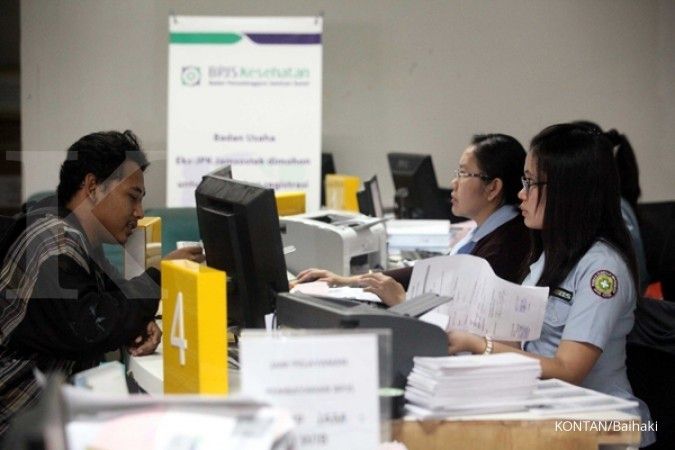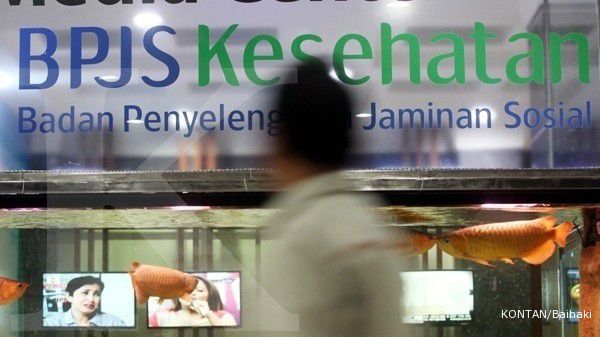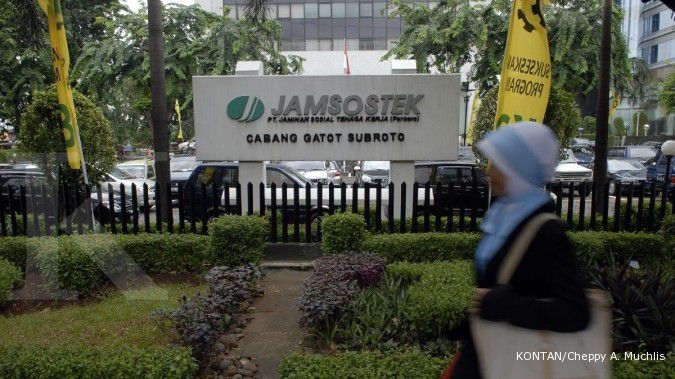JAKARTA. In a bid to provide social security to all workers in the city, Governor Joko “Jokowi” Widodo has issued a gubernatorial decree requiring businesses to register their employees with the Occupational Social Security Management Agency (BPJS Ketenagakerjaan) when they apply for or renew their operating licenses with the city administration.
Gubernatorial Decree No. 30/2014 issued by the governor on April 29 also instructs all municipal and regency administrations and district and sub-district heads to issue business permits only to employers who register their workers for the occupational social security programs created by Law No. 40/2004 on the national social security system (SJSN).
Jakarta Manpower and Transmigration Agency head Deded Sukandar said in a meeting at the BPJS Ketenagakerjaan Jakarta office on Wednesday that municipal and regency administrations should deny permits to employers who failed to show proof of participation in the welfare programs.
“The decree has been issued to show the city administration’s strong commitment to providing social security for workers both in the formal and informal sectors, as the current remuneration system is poor,” he said.
He went on to say that the governor had instructed the city’s five municipal administrations and the Thousand Islands regency administration to include the BPJS Ketenagakerjaan in their one-door integrated service program.
Hardi Yuliwan, head of BPJS Ketenagakerjaan Jakarta supervising 17 branch offices in the city, said his side would start implementing the decree by placing one-door integrated service staff in the East Jakarta municipal administration on Thursday.
“After that, we will place several staffers [...] in other municipal administrations and the Thousand Island regency,” he said.
Hardi also said his side would start immediately exercising its investigative authority to crack down on truant companies to force them to take part in the compulsory social security programs.
“Strict measures are needed and have to be taken because as of now only 60 percent or 3.4 million of 4.7 million workers working in the formal sector have been registered with BPJS Ketenagakerjaan,” he said.
“Of 41,000 companies taking part in the occupational social security programs, several have reported only the basic salaries of their workers and another chunk have only registered a portion of their workers.”
Hardi added that despite a 2013 Constitutional Court ruling allowing workers to directly register themselves with BPJS Ketenagakerjaan, most of those still unprotected declined to do so due to fears of intimidation and dismissal from their employers.
Yuni, head of the service division at BPJS Ketenagakerjaan Jakarta who also attended Wednesday’s meeting, said that the provider had made Jakarta a pilot project for the enforcement of Government Regulation No. 86/2013, which requires all workers in the informal sector, including motorcycle taxi (ojek) drivers, farmers and street vendors, to register for the occupational social security programs.
“We have established a special desk to handle workers in the informal sector,” she said.
She also warned that according to the regulation, informal workers failing to register themselves with the Social Security Management Agency for Health (BPJS Kesehatan) and the BPJS Ketenagakerjaan were not entitled to obtain public services.
“The sanctions vary, ranging from not being able to get a building permit or drivers license to being denied land certificates, passport and vehicle ownership documents,” she said, adding the regulation had been disseminated to all provincial, regency and municipal administrations.
Meanwhile, the secretary-general of the BPJS Watch, Timbul Siregar, called on the government and the two social security providers — BPJS Kesehatan and BPJS Ketenagakerjaan — to exercise all legal means to force employers to provide social security protection for workers as mandated by the law.
“The social security programs’ success depends on strong enforcement of the law. We should have learned from the past that participation of employers and their workers in the former occupational social security programs [Jamsostek] was low, only 30 percent, or 11 million out of 35 million formal workers, because a firm approach was not taken,” he said.
The 2004 SJSN Law stipulates a maximum five-year prison sentence and a Rp 5 billion fine for companies that fail to register their employees with the two social security agencies. (Ridwan Max Sijabat)
Jokowi forces employers sign social security
June 05, 2014, 11.49 AM
/2013/03/15/1793427192.jpg)
ILUSTRASI. BLU batubara ditargetkan tetap terbentuk di tahun ini
Source: The Jakarta Post
| Editor: Hendra Gunawan
Latest News
-
March 02, 2026, 01.10 PM
Asian Assets Slide as Mideast Strikes Spark Oil Spike, Haven Rush
-
March 02, 2026, 10.49 AM
Bank Indonesia Monitoring Market Movements in Response to Conflict in Middle East
-
February 25, 2026, 08.28 PM
Inpex to Solicit Bids for Construction of Indonesia's Abadi LNG Project in Mid-2026
-
February 24, 2026, 03.38 PM
Eni to Reach Final Investment Decision for Indonesia Gas Projects Next Month
-
February 24, 2026, 01.00 PM
Asia Stocks Try to Steady after Wall Street Selloff Sims Mood
-
February 23, 2026, 04.50 PM
Wall Street Futures and Dollar Slide on Trump Tariff Tumult
-
February 23, 2026, 02.17 PM
Indonesia's Government Spending Jumps 26% in January 2026
-
February 23, 2026, 01.47 PM
Indonesia's Government Spending Jumps 26% in January
-
February 21, 2026, 06.00 AM
Indonesia's Pertamina to Maintain Bidding Process for US Energy Imports














